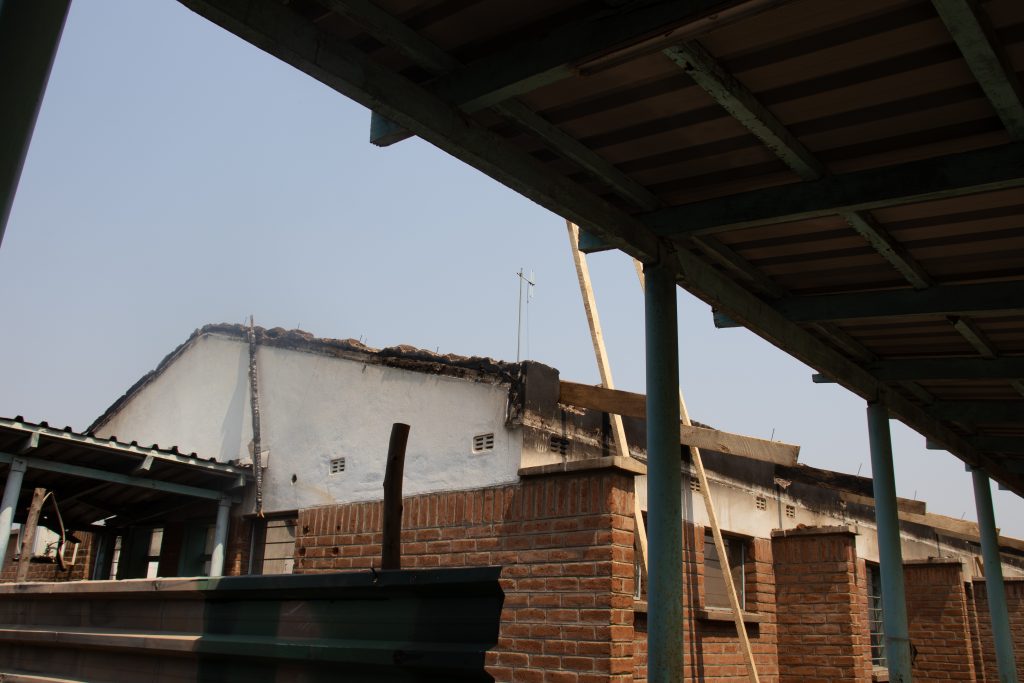The February and March 2023 Tropical Cyclone Freddy left an intimate trail of disaster for many people in the Southern and Central parts of Malawi including 1434 deaths, destruction of infrastructure, and people’s sources of income, and cumulative damage cost of $655 million. An element that was overlooked due to the magnitude and overwhelming destruction was health care facilities which faced equal if not more damage than anyone can fathom. One of the worst-hit health facilities was Mfera Health Centre in Chikwawa district; the rains caused an electrical fault that burnt down the facility and made it inoperable.
Thanks to a £250,000 Wellcome Trust grant to the Malawi Liverpool Wellcome Programme in support of its activities to address the challenges caused by Tropical Cyclone Freddy within the southern region of Malawi, part of the infrastructure at Mfera Health Centre was rebuilt and is currently in operation from the first phase of assessments and building. The MLW assessments team was recently on the ground to conduct a second assessment of rebuilding several health facilities in Mangochi, Chikwawa, and Zomba.
Field Sites Manager Chimwemwe Theu highlighted that MLW plans to help rebuild several facilities and increase resilience in case of future similar impacts because the current state of the health facilities is unsafe and likely to yield further disaster if another natural disaster were to occur.
“Most of the facilities are not in a good state. This makes them vulnerable to similar disasters in the future. If we rebuild and renovate the health infrastructure, we lessen the risk of disaster to people’s lives and strengthen health infrastructure which is necessary for people’s wellbeing,” said Theu.
Another infrastructure assessment conducted at Nchalo Health Centre showed the unsafety of the pharmacy, washroom facilities, and maternity section. The foul odour that welcomed the assessment team at the facility was proof of decay which needs to be addressed for the health seekers’ safety.
The clinician in charge of the facility Olipa Alufasi explained that all healthcare workers wear masks when delivering their work because of the rancidity within the facility. She shared that the placenta pit and incinerator were no longer in use and in need of rebuilding. Cracked walls, rotting doors, falling ceilings, and sunken toilets bore proof of the bitter fruits that Tropical Cyclone Freddy had left behind on health infrastructure.
“Most health centres within the southern region need to be rebuilt because just like Nchalo Health Centre, they are not in good shape. The rains almost rendered Nchalo Health Centre inoperable but we still manage to treat people here. As a health centre with a catchment area of nearly 150,000 people, it is important that we have strong infrastructure that can stand the test of time. If our facilities are rebuilt, it will be a good working environment for us as health workers but also a safe environment for our patients and their guardians,” said Alufasi.
The MLW assessment team visited Zomba district on 10 October 2023, Chikwawa district on 11 October, and Mangochi district on 12 October 2023. The second phase of assessments and rebuilding under the Wellcome Trust grant follows the first phase which was done in Chiradzulu, Zomba, Blantyre, and Chikwawa districts.
